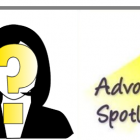The phone rings. It’s a new, potential client calling. You answer, “This is Joan Advocate. May I help you?”
The client, Juanita, is relieved to hear your friendly voice. She launches into her story about the doctor not listening to her, and that she can’t fill her prescription because it’s too expensive. Then she asks if you can help her.
“I’ll do my best!” you reply. Then you begin to address Juanita’s challenges. “Let’ talk about your doctor not listening. Have you tried writing down your questions before you go to your appointment?”
No – Juanita has never tried that. “Good idea. I’ll give that a try,” reports Juanita. “But what about my prescription?”
“Is it possible there is another drug in the same class? Or even a generic? Sometimes you just need to ask your doctor about those possibilities. He may not realize the one he prescribed is too expensive.”
“Thank you so much,” Jaunita answers. “Great idea!”
So then, because you know it’s a necessary evil, you ask, “Juanita. You can see I’ve been able to help you. Would you be interested in hiring me to be your advocate?”
“What do you charge for your services, Joan?”
…. And there we are. The dreaded “how much does it cost?” question.
After you tell Juanita what you charge, Juanita thanks you profusely for your help, hangs up the phone, and once again you are frustrated because you weren’t able to convert a call into a paying client.
What went wrong?
At least two things… Let’s look at these bad habits of yours to figure out how to fix them.
Bad Habit #1: Giving Away the Milk
We’ve explored this before; the concept of “why buy the cow when you can get the milk for free?”
Look at the conversation above. Juanita posed the problems, and you gave her possible solutions. So why would Juanita want to pay you now that she knows what to do, and can do both of those things herself? She won’t.
Not convinced? Then let’s look at it differently. Suppose your hair has become difficult to work with – flyaway! Your hairdresser suggests that you change shampoos, and to use “Great Stuff” shampoo. Then she asks you, “Would you like me to wash your hair to make it more manageable?” Of course not! Why would you pay your hairdresser extra when all you need to do is buy some Great Stuff shampoo?
Yes, uh-huh. Like your hairdresser did, you’ve been giving away the milk for free.
So many people who choose advocacy as a career have spent a lifetime solving problems for patients. Solving problems is their automatic reaction. They’ve been loved and appreciated all their lives for doing just that. It never occurs to them that as an independent advocate who is trying to make a living, that they must STOP that behavior during initial conversations in order to succeed.
You need them to sign a contract, to pay you, to respect your abilities to solve their problems. You must break the habit of making suggestions in that initial call.
So what should you do differently? You should simply assure them that you can help without telling them how you do it.
When the potential client tells you his story, you respond with “Yes, we can help you connect better with your doctor.” or “Yes, I may be able to help you work out the prescription and pricing situation.” or “I’ve been able to help many clients solve problems just like this. I can help you, too.”
Those answers are reassuring… but they’ll have to buy the milk from you to get the answers.
Bad Habit #2: Trying to Answer the “What does it cost?” question.
Never (I repeat) NEVER tell them what you will charge without having a conversation to determine (as much as possible) the scope of work.
Further, and perhaps even more importantly, never (I repeat) NEVER quote your hourly rate in isolation.
Consider: You phone your lawyer to discussing drawing up a new contract for use with your advocacy practice. You ask your lawyer how much that will cost. She replies that she charges $250 an hour.
But do you have any idea what the total cost will be? No! Because in your head, you begin doing math… “OMG – how many hours will it take her? This could cost me thousands!” So you decide instead to go online to see if you can find something usable. As did Juanita.
So, then… how do you answer potential clients who ask the “how much do you charge” question?
After reassuring them you can help, you immediately launch into the “This is how I work with clients” conversation. You talk about developing an assessment including what you will charge to do it (you can read more in The Start and Grow Your Own Practice Handbook on how to go about this.) You reassure them that for that amount of money you’ll deliver a report on what needs to be done, and that if they would like, and if the pricing seems fair, they can hire you to handle the tasks on the report for you. That way they will know exactly what it will cost, and if they decide not to hire you, then at least they will know what needs to be done. They feel reassured. More importantly, it establishes trust.
Put another way: smart advocates don’t let potential clients do bad math.
How can you break these bad habits?
The same way you get to Carnegie Hall… you practice, practice, practice. Write out a script or an outline. Practice with a friend or in front of a mirror. Get someone to role play with you. Repeat until you’re more comfortable with not providing instant solutions then explaining your work process, and asking them to sign a contract and to pay you.

Once you get past these bad habits, you will begin seeing that conversion from phone calls to pay checks.
And you’ll begin to build a good, healthy advocacy practice.
MASTER LIST OF PRACTICE RESOURCES | LEARN ABOUT APHA MEMBERSHIP | REASONS PATIENTS NEED ADVOCATES






Once again Trisha you are spot on.
I have fallen into this “bad habit”. One way I am learning to improve, is I have an Objection Handler (my old days in marketing) it’s simple with bullet points. I keep this near my desk so I can glance down to remind myself of how to handle the situation. I am still new in my practice so this is helping me develop “good habits”. I am going to add your suggestions from this post! Thank you.